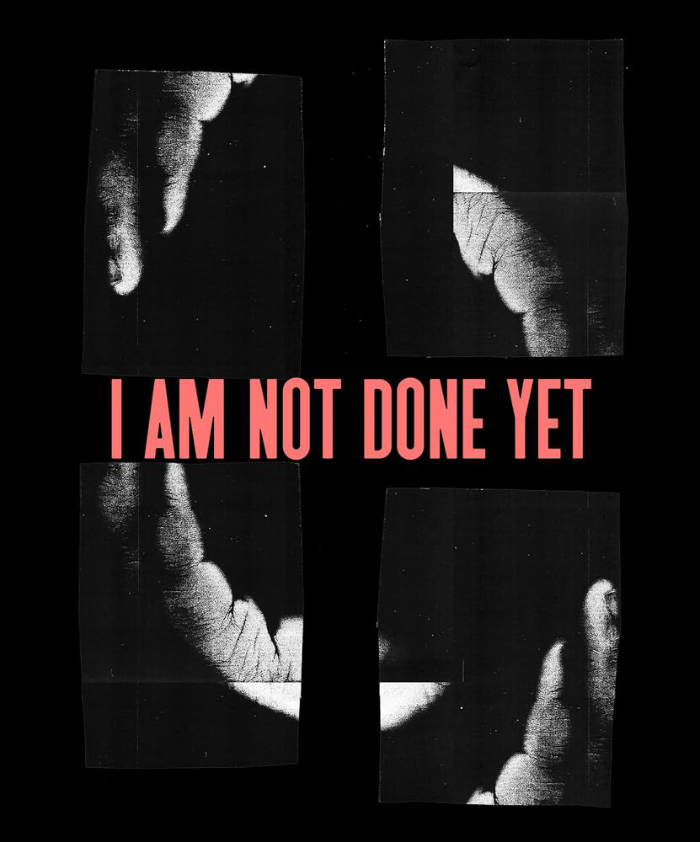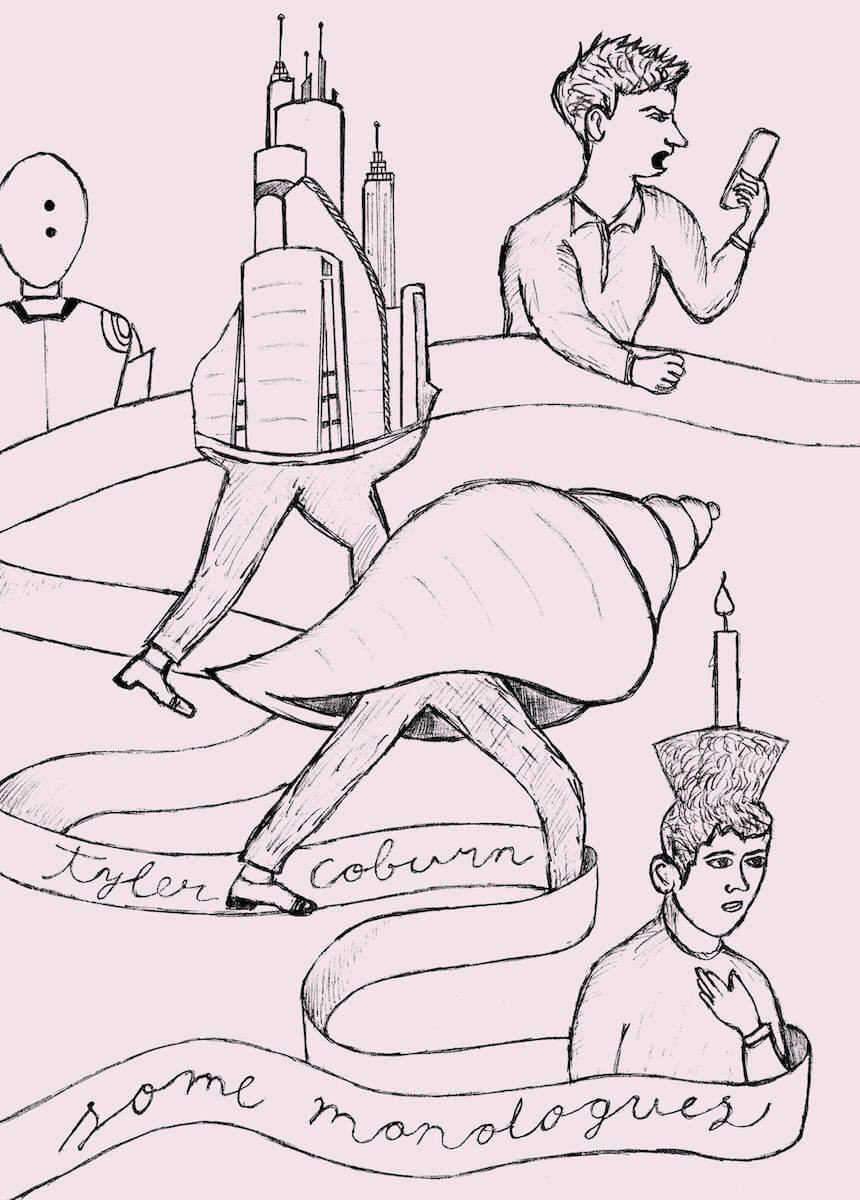Kameelah Janan Rasheed
Kameelah Janan Rasheed

I am not done yet
A learner, Kameelah Janan Rasheed grapples with the poetics-pleasures-politics of Black knowledge production, information technologies and belief formation. Her work looks at knowledge and how it is created, embodied, stored, cataloged, hidden, learned, and also unlearned, with particular focus on facets of incompleteness, information (il)legibility and the use of seemingly error-ridden image and text data.
Rasheed works primarily with paper and vinyl that she attaches to walls and public spaces, creating what she describes as "ecosystems of iterative and provisional projects." Based on a 1974 poem of the same name by American writer Lucille Clifton, her exhibition "i am not done yet" deals with questions of incomplete knowledge and continuous learning through "Black storytelling" and "Islamic mysticism." At the same time, the titular sentence "i am not done yet" can also be understood as an assertive, declarative statement in its own right.
This artist book is published on the occasion of Kameelah Janan Rasheed's first ever institutional exhibition in Germany at Kunstverein Hannover in 2022.
"When I think about the density of language, I imagine the material presence of the language in space. But I also hope there is acknowledgment that no sentence is a simple sentence. Every sentence holds meaning, exceeds meaning, moves in different directions simultaneously." - Kameelah Janan Rasheed
Texts by Sergey Harutoonian, Kathleen Rahn, Kameelah Janan Rasheed, Legacy Russell
And more

Some Monologues
Working at the nexus of performance, art writing, and fiction, Tyler Coburn creates monologues that explore how the “I” is marked in speech. His myriad topics—alternate history, legal personhood, digital labor, and resonant frequency, to name a few—defy straightforward modes of presentation, often insisting on site-specificity and social intimacy at the expense of conventional documentation.
Some Monologues collects, for the first time, the scripts of Coburn’s work from the past fifteen years, many of which have not previously been published. Accompanying them are texts by eleven artists, writers, curators, and scholars who experienced these performances firsthand, collaborated in their making, conversed with the artist about them, or share an interest in the subjects they engage. Written in theoretical, poetic, and autobiographical registers, these contributions offer new perspectives on the monologue as an expansive and relational form.
Introduction by Elvia Wilk. Contributions by Yu Araki, A.E. Benenson, Mashinka Firunts Hakopian, Sven Lütticken, Kameelah Janan Rasheed, Spyros Papapetros, Camille Richert, Théo Robine-Langlois, Ian Wallace, and Michelle Wun Ting Wong.
Tyler’s scripts refuse to fix an authorial voice; instead, they make the conditions of authorship itself their subject. Blurring the boundaries between fiction and document, the human and the bureaucratic, the self and its doubles, his work thinks through systems from the inside, often using language as both architecture and trap. In their precision and porousness, I recognize a shared pursuit: how to locate agency within constraint, and how to turn the administrative or the technological into a site of intimacy. — Jill Magid
In Tyler Coburn’s Some Monologues, a binary that remains constitutive for the ideological continuity of modern life, in all its colonial and capital forms, is undone: digital vs. physical. In troubling that chasm, Coburn plays out the repercussions of these ideologies of anthropomorphic naturalism, guiding us through their resonances, doubles, codings, and relays. But he also renders himself as the relay of these transferences, in the process expanding art’s premodern calling: to exist as an invocation. Reification suddenly appears as what is situated between embodiment and disembodiment, with both potentially destabilized. Some Monologues, the book, is this destabilization’s ideal format: as much documentation, an echo, of Coburn’s works through their scripts, as it is an instruction manual for denaturalizing our sense/s. — Kerstin Stakemeier
Tyler Coburn is an artist, writer, and professor based in New York. He received a 2024 Andy Warhol Foundation Arts Writers Grant, and his writing has appeared in ArtReview, BOMB, C Magazine, Dis, e-flux journal, frieze, LEAP, Metropolis M, Mousse, and Rhizome. Coburn is the author of four books: I’m that angel (self-published, 2012), Robots Building Robots (CCA Glasgow, 2013), Richard Roe (Sternberg, 2019), and Solitary (Sternberg and Art Sonje Center, 2022). He has presented artwork at such venues as Centre Pompidou, Paris; Bergen Kunsthall; Hayward Gallery, London; Para Site, Hong Kong; and Kunstverein Munich.

Why are they so afraid of the lotus?
Based on questions raised by the work of filmmaker Trinh T. Minh-ha, the second volume of the Wattis Institute's annual reader includes new writing and art by Ranu Mukherjee, Kathy Zarur, Shylah Hamilton, Astria Suparak, and Tamara Suarez Porras, as well as written and visual contributions by Trinh T. Minh-ha, Mei-mei Berssenbrugge, Sky Hopinka,Christina Sharpe, Christine Wang, Camille Rankine, Dionne Brand, Renee Gladman, Theresa Hak Kyung Cha, Kameelah Janan Rasheed, and Steffani Jemison, among others.
What does the promise of "speaking nearby" rather than "speaking about" look like today? What are the politics of hospitality? What are the problematics of "postfeminism," and how do we challenge the West as the authoritative subject of feminist knowledge? What are the ways that language can be a site of rupture? How do we generate mistrust in the "well-written," and how can poetry be a radical act of refusal? How can we be subjects that believe in land and not borders? What influence has technology and digital space had on the "making and unmaking of identity"? How do we navigate a cyclical eruption of decolonizations?
The Wattis Institute's annual reader, A Series of Open Questions, provides an edited selection of perspectives, images, and references related to the Wattis's year-long "On our mind" research seasons. Each volume includes newly commissioned writing by members of the research season's core reading group, as well as text and visual contributions by a diverse range of other artists and writers. The title of each reader takes the form of a question and becomes, as new books are published, a gradually evolving series of open questions.